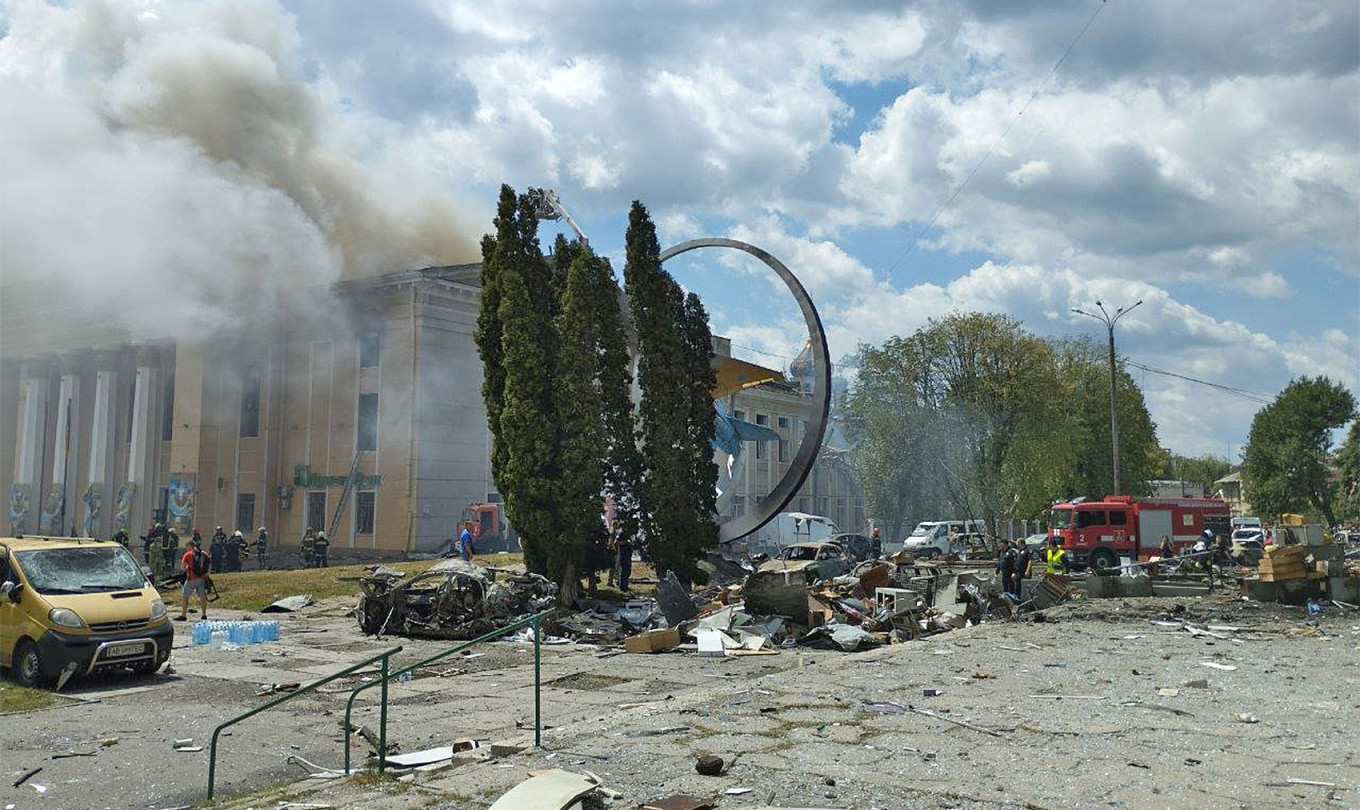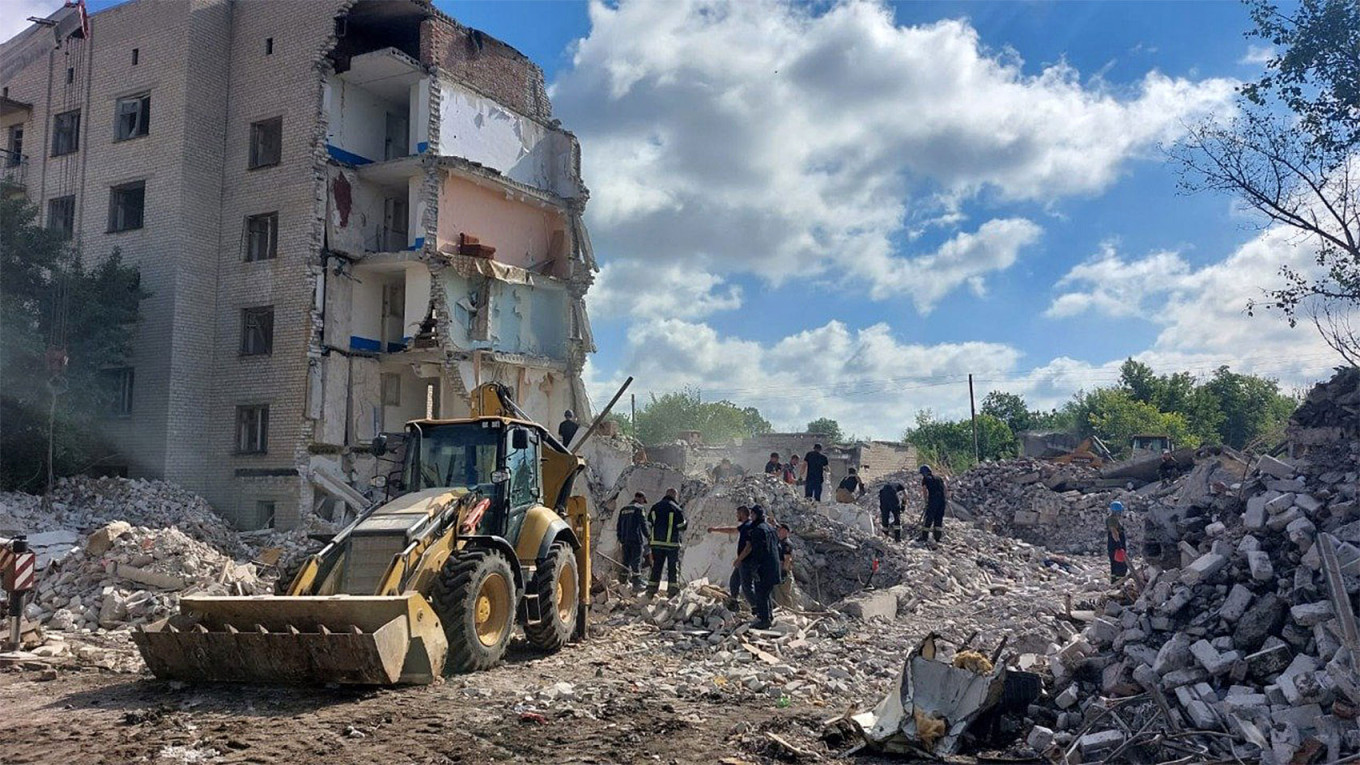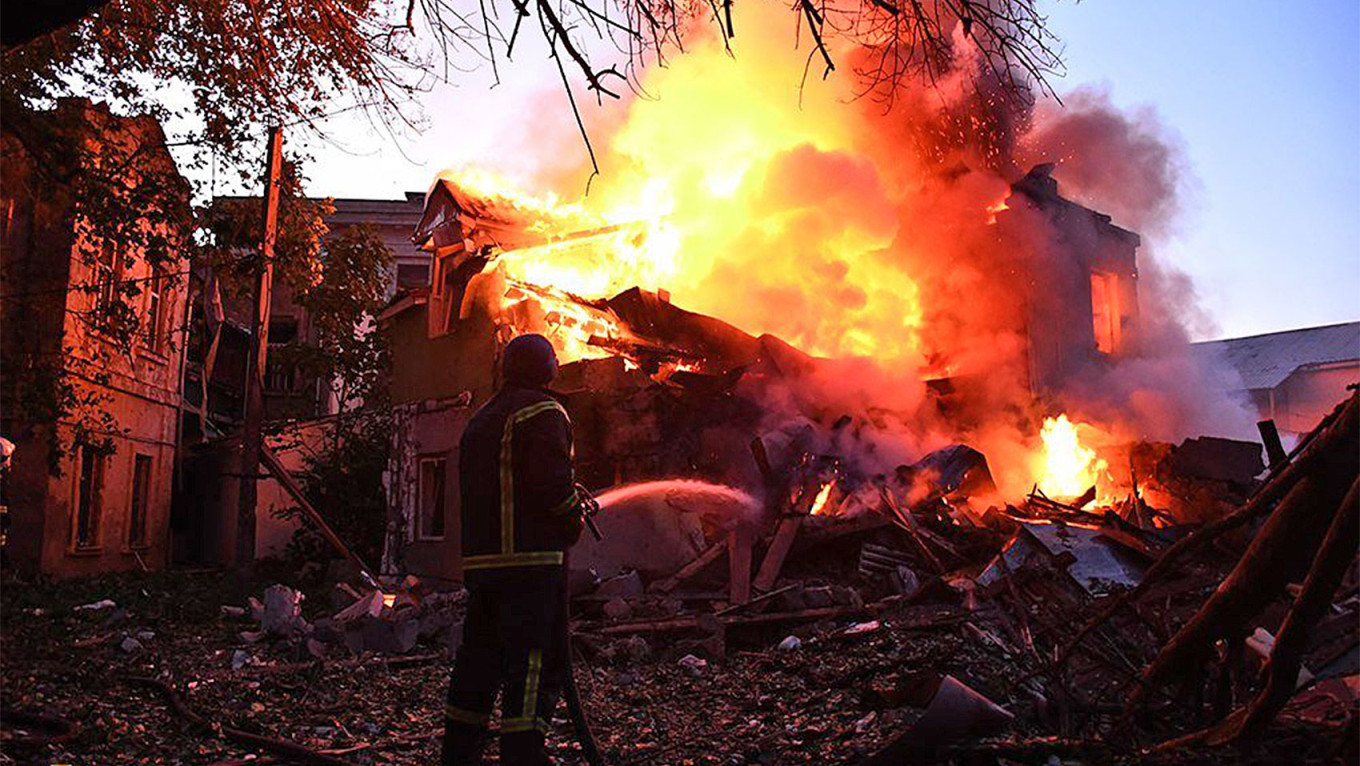Russian forces are believed to have paused their grueling offensive in eastern Ukraine to rest soldiers and re-position for their next assaults while simultaneously stepping up rocket attacks on Ukrainian cities, military analysts told The Moscow Times.
In the latest strike on a Ukrainian city, at least 23 civilians, including three children, were killed Thursday by Russian missiles in the central city of Vinnytsia — far behind the frontlines — in what President Volodymyr Zelensky called “an open act of terrorism.”
The spate of missile attacks correlates with the temporary slowdown of operations in the east of Ukraine, according to William Alberque, director of the arms control program at the International Institute for Strategic Studies.
“If Russia is going to seek a halt, it’s likely they’re going to suddenly increase the level and scale of violence,” he said.
Russia has made a series of strategic gains in Ukraine’s east and south in recent weeks as the Kremlin leverages advantages in artillery and ammunition to seize Ukrainian territory.

But this grinding war of attrition has also taken a heavy toll on Russia’s Armed Forces.
“To continue operations even incrementally over such a large area, Russia needs to rest and concentrate its forces,” said Dara Massicot, a senior policy researcher focusing on the Russian army at U.S. think tank RAND Corporation.
No major territorial gains have been reported for Russia this week in eastern Ukraine.
After last week’s capture of the Ukrainian city of Lysychansk, Russian President Vladiimr Putin ordered that the soldiers involved in the battle be given time to rest.
Russian soldiers are “taking measures to replenish their combat capabilities,” the Russian Defense Ministry said in a subsequent statement. “Servicemen are given the opportunity to rest and receive letters and parcels from home.”
While these troops are resting, Russian forces have kept up a steady stream of cruise missile attacks on Ukrainian cities behind the frontlines.
Photos from the scene of Thursday’s strike on what appeared to be a cultural center in Vinnytsia showed the charred remains of upturned cars, debris scattered across the road, severed human limbs and billowing black smoke.
Earlier that day, nine missiles struck the southern Ukrainian city of Mykolaiv, damaging a hotel, two schools and a stadium, according to Vitaliy Kim, the head of the regional military administration. At least 10 missiles reportedly targeted two universities in the city Friday.
And the death toll from a rocket attack Saturday on a residential building in the Donetsk region town of Chasiv Yar rose steadily all week as bodies were pulled from the rubble. The toll rose to 47 Wednesday, according to Ukraine’s State Emergency Service.
After seizing the whole of Ukraine’s Luhansk region earlier this month, Moscow now controls half of the Donbas, a key Kremlin war aim after it failed to take Kyiv.
The current halt in the offensive in the east is likely designed to give Moscow time to maneuver troops into place for assaults on the key cities of Sloviansk and Kramatorsk.
Shelling of Ukrainian-held areas on the approach to Sloviansk has continued in recent days.
The fight for Sloviansk and Kramatorsk — which had a combined pre-war population of about 260,000 people — is likely to be one of the most “significant” battles of the war, military analyst Michael Kofman told the War of the Rocks podcast Monday.

Russian forces will attempt a two-prong attack, with troops advancing south from the Russian-held city of Izyum as well as from the east, Kofman said.
But Russian commanders’ decision to take a break may also have been motivated by Ukrainian successes in deploying newly supplied Western weaponry.
Kyiv has struck a number of high-value Russian targets across occupied areas of eastern and southern Ukraine in recent weeks using the M142 High Mobility Artillery Rocket Systems (HIMARS), which the United States started sending to Ukraine last month.
“Ukraine’s strategic use of HIMARS to destroy ammunition depots and command posts may further shock the Russians into some kind of halt,” said expert Alberque.
The effectiveness of HIMARS has drawn frustration from pro-Kremlin groups and may have contributed to Moscow’s decision to launch a flurry of missile strikes on Ukrainian cities.

In an ominous address to Kremlin officials last week, Putin said that Russia’s forces “haven’t even started anything yet in earnest.”
But expert Massicot described Putin’s words as “blustery” given Russian equipment losses and its struggle to fill a manpower shortage resulting from high casualty rates.
“The recruiting process is failing. There is a lack of volunteers, a decreasing number of contracted soldiers, and more people are trying to avoid conscription,” said independent military analyst Pavel Luzin.
Depending on the severity of the shortages, Russia may — sooner or later — change tack in Ukraine, Luzin said, using the operational hiatus to pivot away from an offensive.
“The next phase may see Russia turn to the defense, with growing terror against the Ukrainian cities and towns closer to the frontline,” he said.